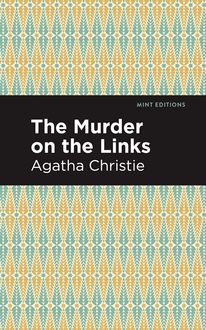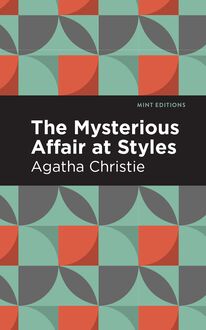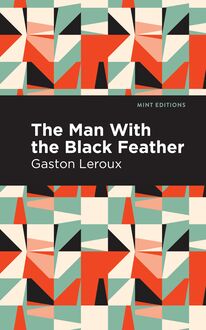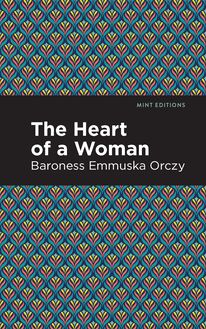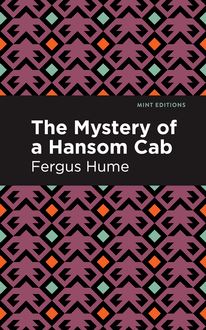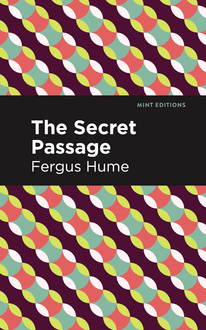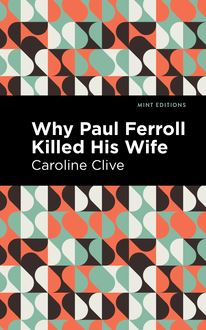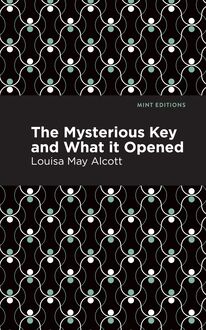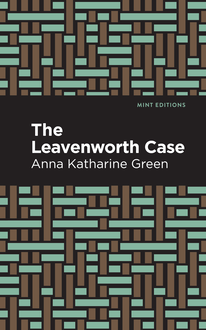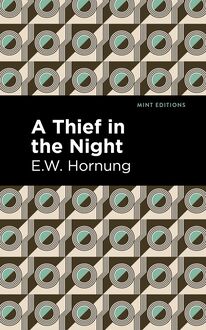-
 Univers
Univers
-
 Ebooks
Ebooks
-
 Livres audio
Livres audio
-
 Presse
Presse
-
 Podcasts
Podcasts
-
 BD
BD
-
 Documents
Documents
-
- Cours
- Révisions
- Ressources pédagogiques
- Sciences de l’éducation
- Manuels scolaires
- Langues
- Travaux de classe
- Annales de BEP
- Etudes supérieures
- Maternelle et primaire
- Fiches de lecture
- Orientation scolaire
- Méthodologie
- Corrigés de devoir
- Annales d’examens et concours
- Annales du bac
- Annales du brevet
- Rapports de stage
La lecture à portée de main
Vous pourrez modifier la taille du texte de cet ouvrage
Découvre YouScribe en t'inscrivant gratuitement
Je m'inscrisDécouvre YouScribe en t'inscrivant gratuitement
Je m'inscrisEn savoir plus
Vous pourrez modifier la taille du texte de cet ouvrage
En savoir plus

Description
The Four Just Men (1905) is a political thriller by Edgar Wallace. The book that launched Wallace’s career as one of England’s leading popular fiction writers, The Four Just Men was released in conjunction with a newspaper competition allowing readers to guess the truth behind the unsolved mystery at the end of the novel. Like many of Wallace’s stories and novels, The Four Just Men was adapted into a silent film in 1921 before being made into a popular television series in 1959. At a small café in the city of Cadiz, four men gather to discuss the affairs of the world. Together, this Englishman, Frenchman, Italian, and Spaniard are known as “The Four Just Men.” Using their power and influence as businessman and aristocrats, these unlikely vigilantes have become humanity’s only hope for justice, a unified front against corruption, abuse, and anarchy. As news of their brotherhood spreads, gaining them the attention of numerous international intelligence agencies, their list of targets dwindles with each successful move they make. Justifying their use of murder through a dedicated application of morality, “The Four Just Men” rid the world of sex traffickers, factory owners, politicians on the take, and countless others who seem always to threaten human life without facing the consequences. The first in a series of six novels, The Four Just Men is an absolute thrill ride from start to finish. With a beautifully designed cover and professionally typeset manuscript, this edition of Edgar Wallace’s The Four Just Men is a classic political thriller reimagined for modern readers.
Sujets
Informations
| Publié par | Mint Editions |
| Date de parution | 14 mai 2021 |
| Nombre de lectures | 0 |
| EAN13 | 9781513285856 |
| Langue | English |
Informations légales : prix de location à la page 0,0400€. Cette information est donnée uniquement à titre indicatif conformément à la législation en vigueur.
Extrait
The Four Just Men
Edgar Wallace
The Four Just Men was first published in 1905.
This edition published by Mint Editions 2021.
ISBN 9781513280837 | E-ISBN 9781513285856
Published by Mint Editions ®
minteditionbooks .com
Publishing Director: Jennifer Newens
Design & Production: Rachel Lopez Metzger
Project Manager: Micaela Clark
Typesetting: Westchester Publishing Services
C ONTENTS P ROLOGUE . T HERY ’ S T RADE I. A N EWSPAPER S TORY II. T HE F AITHFUL C OMMONS III. O NE T HOUSAND P OUNDS R EWARD IV. P REPARATIONS V. T HE O UTRAGE AT THE ‘M EGAPHONE ’ VI. T HE C LUES VII. T HE M ESSENGER OF THE F OUR VIII. T HE P OCKET -B OOK IX. T HE C UPIDITY OF M ARKS X. T HREE W HO D IED XI. A N EWSPAPER C UTTING XII. C ONCLUSION
P ROLOGUE
Thery’s Trade
If you leave the Plaza del Mina, go down the narrow street, where, from ten till four, the big flag of the United States Consulate hangs lazily; through the square on which the Hotel de la France fronts, round by the Church of Our Lady, and along the clean, narrow thoroughfare that is the High Street of Cadiz, you will come to the Cafe of the Nations.
At five o’clock there will be few people in the broad, pillared saloon, and usually the little round tables that obstruct the sidewalk before its doors are untenanted.
In the late summer (in the year of the famine) four men sat about one table and talked business.
Leon Gonsalez was one, Poiccart was another, George Manfred was a notable third, and one, Thery, or Saimont, was the fourth. Of this quartet, only Thery requires no introduction to the student of contemporary history. In the Bureau of Public Affairs you will find his record. As Thery, alias Saimont, he is registered.
You may, if you are inquisitive, and have the necessary permission, inspect his photograph taken in eighteen positions—with his hands across his broad chest, full faced, with a three-days’ growth of beard, profile, with—but why enumerate the whole eighteen?
There are also photographs of his ears—and very ugly, bat-shaped ears they are—and a long and comprehensive story of his life.
Signor Paolo Mantegazza, Director of the National Museum of Anthropology, Florence, has done Thery the honour of including him in his admirable work (see chapter on ‘Intellectual Value of a Face’); hence I say that to all students of criminology and physiognomy, Thery must need no introduction.
He sat at a’ little table, this man, obviously ill at ease, pinching his fat cheeks, smoothing his shaggy eyebrows, fingering the white scar on his unshaven chin, doing all the things that the lower classes do when they suddenly find themselves placed on terms of equality with their betters.
For although Gonsalez, with the light blue eyes and the restless hands, and Poiccart, heavy, saturnine, and suspicious, and George Manfred, with his grey-shot beard and single eyeglass, were less famous in the criminal world, each was a great man, as you shall learn.
Manfred laid down the Heraldo di Madrid, removed his eyeglass, rubbed it with a spotless handkerchief, and laughed quietly.
“These Russians are droll,” he commented.
Poiccart frowned and reached for the newspaper. “Who is it—this time?”
“A governor of one of the Southern Provinces.”
“Killed?”
Manfred’s moustache curled in scornful derision.
“Bah! Who ever killed a man with a bomb! Yes, yes; I know it has been done—but so clumsy, so primitive, so very much like undermining a city wall that it may fall and slay—amongst others—your enemy.”
Poiccart was reading the telegram deliberately and without haste, after his fashion.
“The Prince was severely injured and the would-be assassin lost an arm,” he read, and pursed his lips disapprovingly. The hands of Gonsalez, never still, opened and shut nervously, which was Leon’s sign of perturbation.
“Our friend here”—Manfred jerked his head in the direction of Gonsalez and laughed—“our friend has a conscience and—”
“Only once,” interrupted Leon quickly, “and not by my wish you remember, Manfred; you remember, Poiccart”—he did not address Thery—“I advised against it. You remember?” He seemed anxious to exculpate himself from the unspoken charge. “It was a miserable little thing, and I was in Madrid,” he went on breathlessly, “and they came to me, some men from a factory at Barcelona. They said what they were going to do, and I was horror-stricken at their ignorance of the elements of the laws of chemistry. I wrote down the ingredients and the proportions, and begged them, yes, almost on my knees, to use some other method. ‘My children,’ I said, ‘you are playing with something that even chemists are afraid to handle. If the owner of the factory is a bad man, by all means exterminate him, shoot him, wait on him after he has dined and is slow and dull, and present a petition with the right hand and—with the left hand—so!’” Leon twisted his knuckles down and struck forward and upward at an imaginary oppressor. “But they would listen to nothing I had to say.”
Manfred stirred the glass of creamy liquid that stood at his elbow and nodded his head with an amused twinkle in his grey eyes.
“I remember—several people died, and the principal witness at the trial of the expert in explosives was the man for whom the bomb was intended.”
Thery cleared his throat as if to speak, and the three looked at him curiously. There was some resentment in Thery’s voice.
“I do not profess to be a great man like you, senors. Half the time I don’t understand what you are talking about—you speak of governments and kings and constitutions and causes. If a man does me an injury I smash his head”—he hesitated—“I do not know how to say it… but I mean… well, you kill people without hating them, men who have not hurt you. Now, that is not my way…” He hesitated again, tried to collect his thoughts, looked intently at the middle of the roadway, shook his head, and relapsed into silence.
The others looked at him, then at one another, and each man smiled. Manfred took a bulky case from his pocket, extracted an untidy cigarette, re-rolled it deftly and struck a government match on the sole of his boot.
“Your-way-my-dear-Thery”—he puffed—“is a fool’s way. You kill for benefit; we kill for justice, which lifts us out of the ruck of professional slayers. When we see an unjust man oppressing his fellows; when we see an evil thing done against the good God”—Thery crossed him self—“and against man—and know that by the laws of man this evildoer may escape punishment—we punish.”
“Listen,” interrupted the taciturn Poiccart: “once there was a girl, young and beautiful, up there”—he waved his hand northward with unerring instinct—“and a priest—a priest, you understand—and the parents winked at it because it is often done… but the girl was filled with loathing and shame, and would not go a second time, so he trapped her and kept her in a house, and then when the bloom was off turned her out, and I found her. She was nothing to me, but I said, ‘Here is a wrong that the law cannot adequately right.’ So one night I called on the priest with my hat over my eyes and said that I wanted him to come to a dying traveller. He would not have come then, but I told him that the dying man was rich and was a great person. He mounted the horse I had brought, and we rode to a little house on the mountain… I locked the door and he turned round—so! Trapped, and he knew it. ‘What are you going to do?’ he said with a gasping noise. ‘I am going to kill you, senor,’ I said, and he believed me. I told him the story of the girl… He screamed when I moved towards him, but he might as well have saved his breath. ‘Let me see a priest,’ he begged; and I handed him—a mirror.”
Poiccart stopped to sip his coffee.
“They found him on the road next day without a mark to show how he died,” he said simply.
“How?” Thery bent forward eagerly, but Poiccart permitted himself to smile grimly, and made no response.
Thery bent his brows and looked suspiciously from one to the other.
“Government, and there are men whom the Government have never heard of. You remember one Garcia, Manuel Garcia, leader in the Carlist movement; he is in England; it is the only country where he is safe; from England he directs the movement here, the great movement. You know of what I speak?”
Thery nodded.
“This year as well as last there has been a famine, men have been dying about the church doors, starving in the public squares; they have watched corrupt Government succeed corrupt Government; they have seen millions flow from the public treasury into the pockets of politicians. This year something will happen; the old regime must go. The Government know this; they know where the danger lies, they know their salvation can only come if Garcia is delivered into their hands before the organisation for revolt is complete. But Garcia is safe for the present and would be safe for all time were it not for a member of the English Government, who is about to introduce and pass into law a Bill. When that is passed, Garcia is as good as dead. You must help us to prevent that from ever becoming law; that is why we have sent for you.”
Thery looked bewildered. “But how?” he stammered.
Manfred drew a paper from his pocket and handed it to Thery. “This, I think,” he said, speaking deliberately, “is an exact copy of the police description of yourself.” Thery nodded. Manfred leant over and, pointing to a word that occurred half way down the sheet, “Is that your trade?” he asked.
Thery looked puzzled. “Yes,” he replied.
“Do you really know anything about that trade?” asked Manfred earnestly; and the other two men leant forward to catch the reply.
“I know,” said Thery slowly, “everything there is to be known: had it not been for a—mistake I might have earned great money.”
Manfred heaved a sigh of relief and nodded to his two companions.
“Then,” said he briskly, “the English Minister is a dead man.”
I
A N EWSPAPER S TORY
On the fourteenth day of August, 19—, a
-
 Univers
Univers
-
 Ebooks
Ebooks
-
 Livres audio
Livres audio
-
 Presse
Presse
-
 Podcasts
Podcasts
-
 BD
BD
-
 Documents
Documents
-
Jeunesse
-
Littérature
-
Ressources professionnelles
-
Santé et bien-être
-
Savoirs
-
Education
-
Loisirs et hobbies
-
Art, musique et cinéma
-
Actualité et débat de société
-
Jeunesse
-
Littérature
-
Ressources professionnelles
-
Santé et bien-être
-
Savoirs
-
Education
-
Loisirs et hobbies
-
Art, musique et cinéma
-
Actualité et débat de société
-
Actualités
-
Lifestyle
-
Presse jeunesse
-
Presse professionnelle
-
Pratique
-
Presse sportive
-
Presse internationale
-
Culture & Médias
-
Action et Aventures
-
Science-fiction et Fantasy
-
Société
-
Jeunesse
-
Littérature
-
Ressources professionnelles
-
Santé et bien-être
-
Savoirs
-
Education
-
Loisirs et hobbies
-
Art, musique et cinéma
-
Actualité et débat de société
- Cours
- Révisions
- Ressources pédagogiques
- Sciences de l’éducation
- Manuels scolaires
- Langues
- Travaux de classe
- Annales de BEP
- Etudes supérieures
- Maternelle et primaire
- Fiches de lecture
- Orientation scolaire
- Méthodologie
- Corrigés de devoir
- Annales d’examens et concours
- Annales du bac
- Annales du brevet
- Rapports de stage
